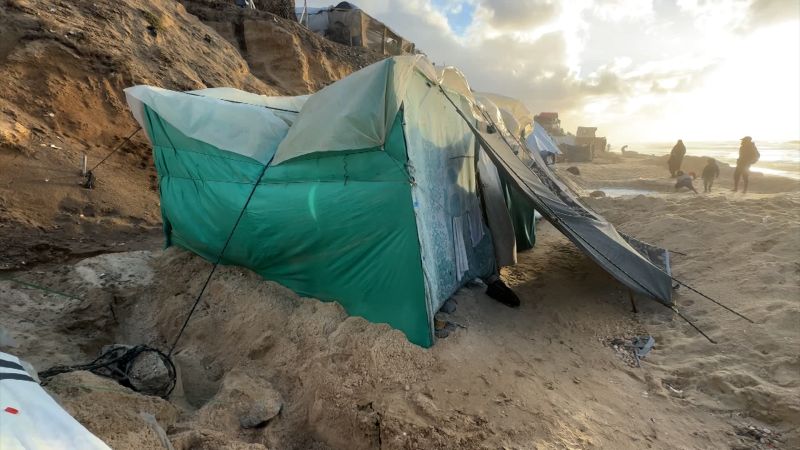Winter in Gaza Means More People Will Die: Shivering Cold and Rain Pose Added Threat to Displaced Palestinians
As winter approaches in Gaza, the already dire situation faced by displaced Palestinians is set to become even more perilous. With inadequate shelter, scarce resources, and limited access to essential services, the arrival of cold weather and heavy rains poses a significant threat to the vulnerable population.
The ongoing conflict in Gaza has resulted in the displacement of thousands of Palestinians, many of whom are now living in overcrowded shelters or temporary structures that offer little protection from the elements. These makeshift homes are particularly vulnerable to winter weather, with leaks, flooding, and inadequate insulation creating hazardous living conditions.
The lack of access to adequate shelter, heating, and winter clothing means that many displaced Palestinians are ill-equipped to withstand the harsh winter conditions. Without proper protection from the cold and rain, these vulnerable individuals, including children, the elderly, and the sick, are at increased risk of hypothermia, respiratory infections, and other cold-related illnesses.
In addition to the physical threats posed by the winter weather, the limited availability of essential services such as food, clean water, and medical care further compounds the challenges faced by displaced Palestinians. The continued blockade of Gaza and restrictions on the movement of goods and people have only served to exacerbate the humanitarian crisis in the region, leaving thousands of families struggling to survive.
As international organizations and aid agencies work to provide assistance to those in need, the situation in Gaza serves as a stark reminder of the urgent need for a lasting solution to the conflict and the creation of conditions that allow displaced Palestinians to return to their homes in safety and dignity. Until then, the winter months will continue to bring added hardship and suffering to those who have already endured so much.


